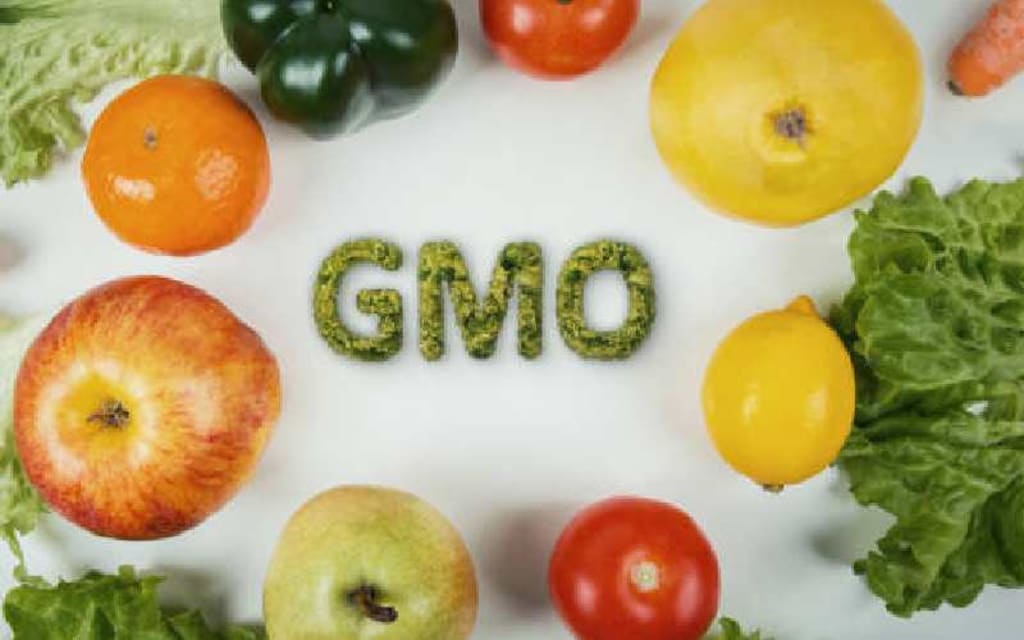Hidden truths about GMOs
Are GMOs really safe for human consumption?

The safety of genetically modified organisms (GMOs) for human consumption is a topic of ongoing debate and scientific research.
Some scientists and organizations argue that GMOs are safe to eat because the genetic modifications made to the plants are similar to genetic changes that occur naturally through traditional breeding methods. They also argue that GMOs can offer benefits such as increased crop yields and reduced use of pesticides.
There are several potential risks associated with genetically modified organisms (GMOs) that scientists and researchers have identified. These include:
Environmental risks: GMOs can have unintended environmental effects, such as developing pesticide-resistant weeds and insects and displacing non-GMO crops and wild relatives.
Ecological risks: GMOs can affect the balance of ecosystems by altering the relationships between plants, animals, and microorganisms. For example, using Bt toxin (a toxin produced by certain bacteria) in some genetically modified crops may have unintended consequences on non-target organisms.
Economic risks: GMOs can negatively impact farmers, particularly small-scale farmers, by increasing their dependence on expensive inputs such as seeds and pesticides and undermining their traditional agricultural practices.
Societal risks: GMOs can have social, ethical, and cultural implications, such as the loss of traditional knowledge, farming practices, food systems, and the impact on farmers' livelihoods.
There are concerns about potential human health risks associated with genetically modified organisms (GMOs), although the scientific evidence to support these concerns is limited. Some of the potential risks that have been identified include the following:
Allergenicity: There is a concern that introducing new proteins into food through genetic modification could create new allergens. However, the safety assessment process for GMOs includes an evaluation of the allergenicity of the new proteins, and no evidence of increased allergenicity of GMOs has been found.
Toxicity: There is a concern that GMOs may contain toxins that could be harmful to human health. However, the safety assessment process for GMOs includes an evaluation of the potential toxicity of the new proteins, and no evidence of increased toxicity of GMOs has been found.
Antibiotic resistance: Some GMOs are engineered using antibiotic resistance genes as markers. There is a concern that using these genes in GMOs could lead to the development of antibiotic-resistant bacteria, making it more difficult to treat infections. However, the safety assessment process for GMOs includes evaluating the potential development of antibiotic-resistant bacteria, and no evidence of increased antibiotic resistance of GMOs has been found.
Nutritional composition: There is a concern that GMOs could impact the nutritional composition of food. However, the safety assessment process for GMOs includes an evaluation of the nutritional composition of the modified food, and no evidence of significant changes in the nutritional composition of GMOs have been found.
It's worth noting that it's important to understand that each GMO is unique and must be evaluated on its merit; therefore, the risks and benefits associated with a specific GMO may vary greatly.
It's important to note that the safety of GMOs is determined on a case-by-case basis. Each genetically modified crop is evaluated for safety by regulatory agencies such as the US Department of Agriculture (USDA), the Environmental Protection Agency (EPA), and the Food and Drug Administration (FDA). These agencies review data from safety studies and field trials to ensure that the crop is safe for human consumption and the environment before it is approved for commercial use.
It's also worth noting that many countries have different regulations and laws regarding the use of GMOs, and the safety assessment of GMO crops can vary between countries.
In conclusion, the safety of GMOs for human consumption is a complex and ongoing debate in the scientific community, with some studies showing that they are safe and others raising concerns about potential risks. It's important to consult with your doctor or a registered dietitian for personalized advice about consuming GMOs.
About the Creator
Nelis Thuo
Welcome to my world of words! I am a lover of all things literature and storytelling. Join me on my journey as I explore the depths of the human experience and uncover the beauty in the everyday.






Comments
There are no comments for this story
Be the first to respond and start the conversation.